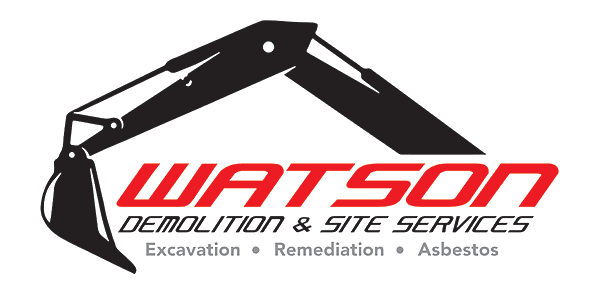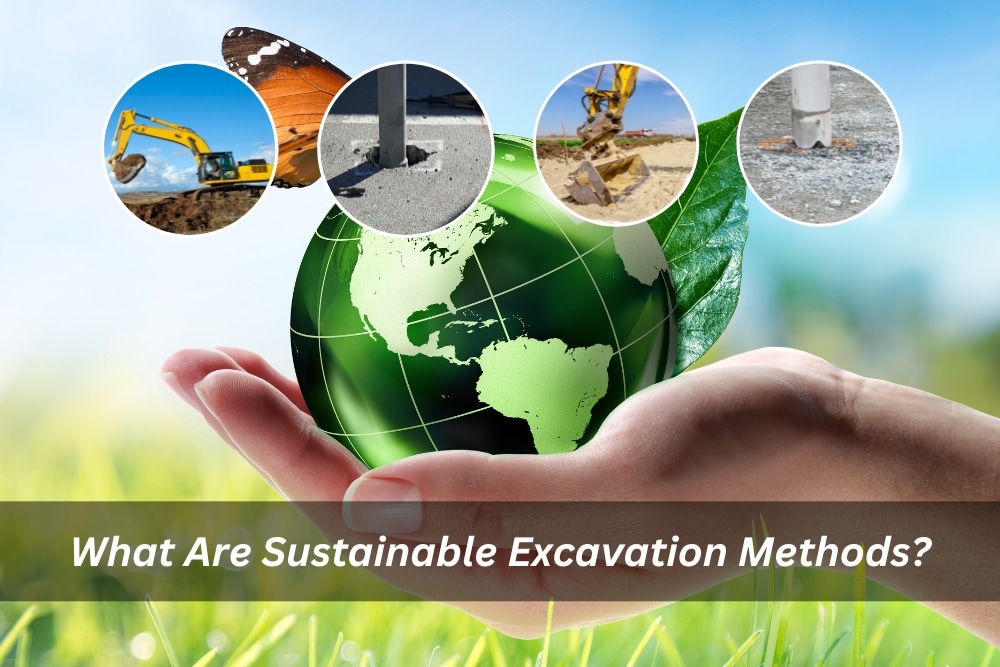In a world where environmental consciousness is paramount, even the construction industry is stepping up its game to embrace sustainability. Excavation, a fundamental process in construction and infrastructure development, is no exception. Traditional excavation methods have often left scars on our planet, but with the advent of sustainable excavation methods, we can now excavate with a greener conscience.
What Do Sustainable Excavation Methods Entail?
Sustainable excavation methods are practices that prioritise eco-friendliness and reduce the negative impact of excavation on the environment. These methods aim to minimise soil erosion, energy consumption, and carbon emissions while maximising the efficient use of resources. Let’s dive deeper into some of these methods:
Why is Sustainable Excavation Important?
- Preserving Natural Resources: Traditional excavation methods can be resource-intensive, depleting natural resources like fossil fuels and fresh water. Sustainable excavation focuses on minimising resource use, ensuring they remain available for future generations.
- Reducing Carbon Footprint: Excavation machinery is known for its emissions. Sustainable methods employ cleaner technologies and practices to decrease carbon footprints, contributing to a healthier planet.
- Mitigating Soil Erosion: Traditional excavation can disrupt soil structures, leading to erosion. Sustainable methods prioritise soil conservation to protect valuable topsoil.
Service of Excavation:
Before delving deeper into sustainable excavation methods, let’s first understand the core service of excavation in the construction industry.
What Is Excavation?
Excavation is the process of removing earth, rock, or other materials from a construction site to create space for foundations, utilities, and other essential structures. Basically, it’s a crucial step in many construction projects, including building foundations, road construction, and land development.
Now, let’s explore sustainable excavation methods that are revolutionising the construction industry.
- Precision Excavation: How Does It Work?
Precision excavation is an advanced method that employs cutting-edge technology to precisely control excavation machinery. GPS-guided equipment allows for accurate digging, reducing the need for over-excavation and minimising material waste. This not only conserves resources but also saves time and money. Additionally, precision excavation reduces the risk of damaging underground utilities, making it a safer option.
- Hydro Excavation: Is Water the Key to Sustainability?
Hydro excavation is a sustainable method that uses pressurised water to break up soil, and a vacuum system to remove the debris. It’s a non-destructive and eco-friendly alternative to traditional digging methods, as it significantly reduces soil disturbance and minimises the risk of underground utility damage. Hydro excavation is particularly useful in urban areas where utility lines are densely packed and need careful excavation.
- Vacuum Excavation: What’s the Suction Solution?
Vacuum excavation, also known as suction excavation, employs a high-powered vacuum to remove soil and debris. This method is non-invasive and environmentally friendly, making it ideal for projects that require minimal soil disturbance, like archaeological excavations or utility line repairs. Vacuum excavation is also effective in removing debris from hard-to-reach areas, making it a versatile choice for various projects.
- Green Excavation Practices: Are They Worth the Hype?
Green excavation practices go beyond machinery and focus on sustainable site management. These practices include recycling excavated materials, reusing soil on-site, and implementing erosion control measures. By adopting these methods, construction projects can reduce their environmental impact significantly. Moreover, green excavation practices often involve careful planning to minimise excavation needs, preserving the natural landscape to the greatest extent possible.
- Electric Excavators: Are They the Future?
Electric excavators are making waves in the construction industry by replacing traditional diesel-powered machines with electric counterparts. They produce zero emissions on-site, contributing to cleaner air and a smaller carbon footprint. While electric excavators are currently more expensive, their long-term environmental benefits make them a worthwhile investment. As battery technology continues to advance, electric excavators are becoming more powerful and versatile, making them a viable option for a wide range of projects.
Sustainable Materials: Can They Change Excavation?
Sustainable excavation doesn’t stop at the digging process. It extends to the materials used in construction. Choosing eco-friendly building materials can reduce the need for extensive excavation in the first place. For example, using recycled concrete or sustainable wood can lower the demand for raw materials and the energy-intensive processes required to extract them. Additionally, incorporating sustainable materials can enhance the overall sustainability of a construction project.
Regulatory Incentives: Is the Government on Board?
Many governments and local authorities are introducing regulations and incentives to promote sustainable excavation methods. These measures may include tax incentives for using eco-friendly machinery, stricter emissions standards, and requirements for sustainable excavation practices in public projects. Staying informed about these regulations can benefit both the environment and your bottom line. Adhering to these guidelines not only safeguards the environment but also guarantees that construction undertakings align with the utmost benchmarks of sustainability, as outlined in the excavation code of practice.
Conclusion: Digging for a Greener Future
Sustainable excavation methods are more than just a trend; they represent a fundamental shift in the construction industry towards a greener, more responsible future. By embracing important excavation safety measures along with precision excavation, hydro excavation, vacuum excavation, and other eco-friendly practices, we can effectively reduce our environmental footprint while satisfying the requirements of a rapidly expanding world.
In a world where sustainability is paramount, we at Watson Demolition & Site Services are committed to leading the way in eco-conscious construction practices. Join us on our journey towards a greener, more responsible future by choosing our sustainable excavation methods for your next project. Whether it’s precision excavation, hydro excavation, or vacuum excavation, we offer cutting-edge solutions that minimise environmental impact while maximising efficiency and safety. Let’s preserve natural resources, reduce carbon footprints, and protect valuable topsoil together. Therefore, embrace sustainable construction practices and choose Watson Demolition & Site Services. Contact us today to dig deeper into sustainability and build a brighter future.



